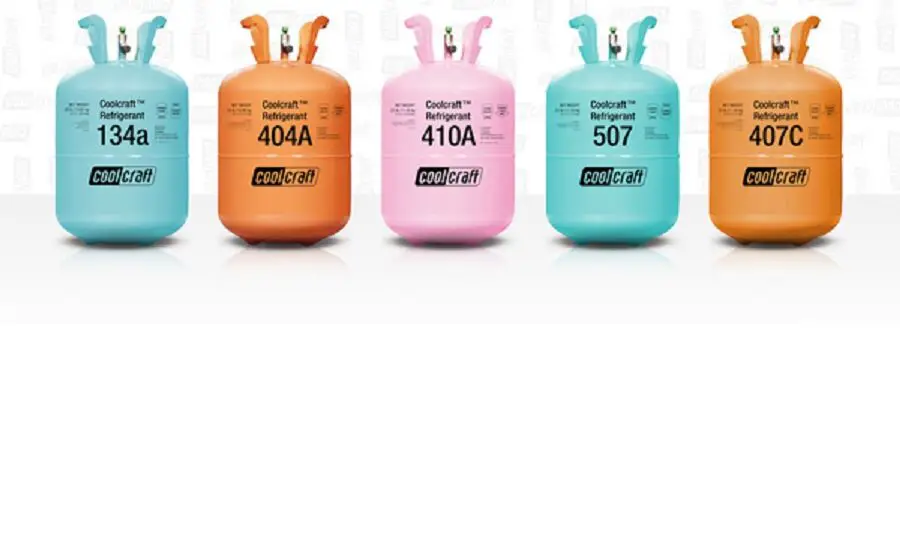Refrigerant tank sizes might not be the hottest topic at your next dinner party, but it plays a pretty big role in how your air conditioning works. Picking the right size can make your system run smoothly, while the wrong choice can lead to inefficiency or even damage. Here, we’ll take a gander at different refrigerant tank sizes, and why it matters.

Table of Contents
Understanding Refrigerant Tanks
Picture this: it’s a sizzling summer day, and you’re basking in the cool air from your AC. That chill vibe? It’s all thanks to refrigerant tanks.
What are Refrigerant Tanks?
Refrigerant tanks are like the unsung heroes of your HVAC system. They hold the refrigerant, a crucial substance that absorbs heat from your space and cools it down. Without it, you’d be sweltering!
Why is the Size of a Refrigerant Tank Important?
Ever thought about why size matters in refrigerant tanks? It’s a bit like shoes – too small, and it’s uncomfortable. Too big, and you’ll be tripping over yourself. The wrong size tank can make your HVAC system work harder than it needs to, which can lead to a lot of problems down the line.
Common Refrigerant Tank Sizes
So, what sizes are we talking about here? Let’s break it down.
Small Refrigerant Tanks
Small but mighty, these tanks pack a punch in compact spaces.
15-pound tanks
The littlest of them all, the 15-pound tanks are perfect for small spaces. They’re like the compact cars of the refrigerant world – not a lot of space, but they can get you where you need to go.
30-pound tanks
A bit bigger than their 15-pound counterparts, 30-pound tanks are the go-to choice for medium-sized spaces. They’re the minivan of refrigerant tanks – still manageable, but with a little more room to work with.
Medium Refrigerant Tanks
Looking for something a bit bigger? Step right up.
50-pound tanks
The 50-pound tanks are like the SUVs of the refrigerant world. They’re perfect for larger spaces, or places with a lot of heat to handle.
100-pound tanks
These are the big boys. A 100-pound tank is like the semi-truck of refrigerant tanks – not for your average job, but when you need them, they really deliver.
Large Refrigerant Tanks
And for those really big jobs, we’ve got the big guns.
125-pound tanks
Think of these as the cargo vans of the refrigerant world. They’re big, they’re burly, and they’re perfect for heavy-duty cooling.
240-pound tanks
The 240-pound tanks are the largest of the bunch. They’re like the 18-wheelers of refrigerant tanks – when you’ve got a big job, these are the tanks to call.
Read more detailed articles on refrigerants – Articles on Refrigerants: The Ultimate Guide to Understanding Them
Selecting the Right Refrigerant Tank Size
So, how do you pick the right size? It’s not as complicated as it might seem. You just need to consider a few things, like the size of your space, the amount of heat you’re dealing with, and the type of HVAC system you have.
Frequently Asked Questions About Refrigerant Tank Sizes
Got questions? We’ve got answers.
What size of refrigerant tank do I need for my home HVAC system?
It depends on a few factors, like the size of your home and how much cooling you need. Generally, a 30 or 50-pound tank will do the trick for most homes.
Is it safe to use a larger refrigerant tank than recommended?
You might think bigger is better, but not in this case. Using a larger tank than you need can make your HVAC system work harder than it needs to, which can lead to problems down the line.
What happens if I use a smaller refrigerant tank than required?
It’s like trying to cool a mansion with a window AC unit – it’s just not going to work. Using a tank that’s too small can make your system work overtime, which can cause wear and tear and even damage your system.
Conclusion
In conclusion, the size of your refrigerant tank can make a big difference in how well your HVAC system works. So next time you’re in the market for a new system, don’t forget to give some thought to the size of the refrigerant tank. Because when it comes to cooling, size really does matter!
